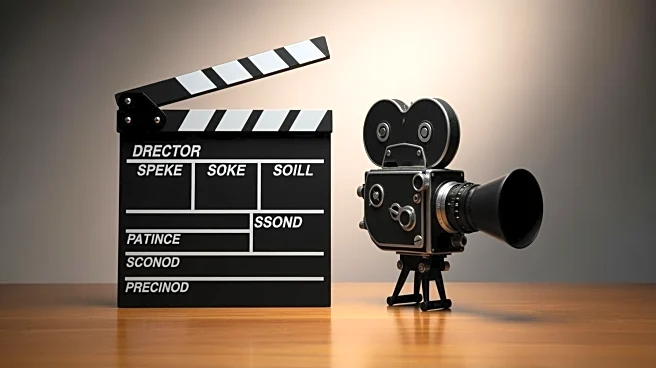What's Happening?
Jennifer Lawrence's recent comments about directing styles have sparked a significant debate in the entertainment industry. During a press Q&A on November 6, 2025, Lawrence stated that female directors
tend not to 'over-direct' compared to some male directors. This remark has been widely circulated by outlets such as Vulture and Deadline, leading to discussions about gender dynamics in filmmaking. The film associated with Lawrence's comments opened on 1,983 screens, achieving a $2.7 million three-day gross, adding commercial stakes to the conversation. The debate centers around whether Lawrence's comments reflect a cultural shift or perpetuate gender stereotypes.
Why It's Important?
The significance of Lawrence's comments lies in their potential impact on industry perceptions and hiring practices. Her remarks have divided opinions, with some supporting the idea of collaborative safety over performative control, while others criticize the generalization of gender roles in directing. As Lawrence is a high-profile actor, her statements could influence awards season narratives and shift industry standards regarding directorial styles. The discussion also highlights broader issues of authorship and credit in filmmaking, potentially affecting future collaborations and the recognition of creative contributions.
What's Next?
The ongoing debate is likely to lead to further discussions about directorial styles and set culture in the film industry. As awards season approaches, Lawrence's comments may influence voting and narrative framing, with thinkpieces and insider opinions shaping public discourse. The industry may see a push for clearer on-set standards or continue to engage in viral debates. The outcome could affect hiring practices and the perception of gender roles in directing, with potential implications for future film projects and collaborations.
Beyond the Headlines
Lawrence's remarks have sparked a conversation about the complexities of workplace dynamics in filmmaking. The simplification of directorial styles into gender binaries appeals to social media arguments but risks flattening diverse methods into stereotypes. Critics emphasize the importance of context, while defenders warn against reinforcing tribal responses in hiring and reviews. The debate underscores the need for nuanced discussions about creative processes and the recognition of diverse approaches in the industry.









